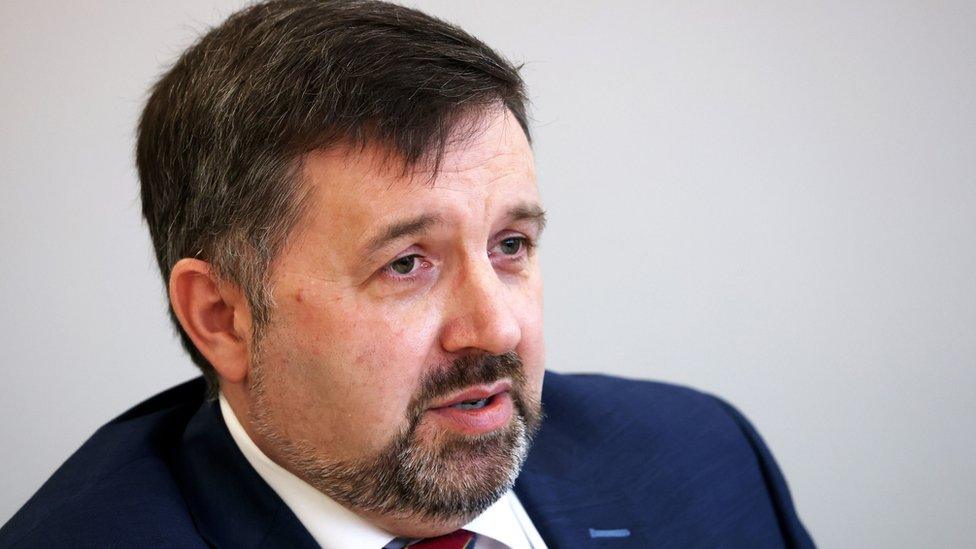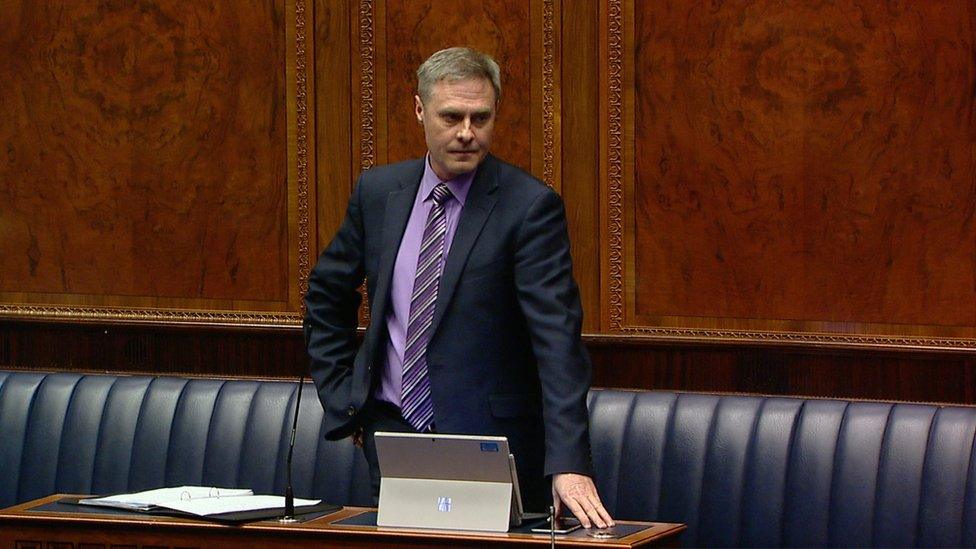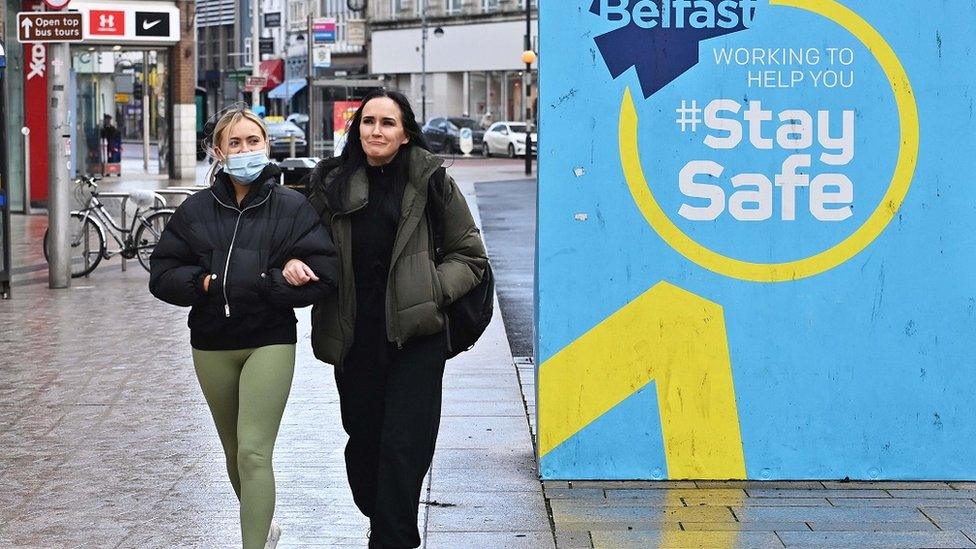Covid-19: Health department wants powers extended
- Published

Robin Swann said he intends to extend the powers given to his department
Northern Ireland's Health Minister Robin Swann has set out plans to extend his department's powers under the Coronavirus Act for another six months.
He repeated his view that it is important to keep the ability to introduce Covid restrictions if needed, such as in the case of a new variant.
However, he acknowledged it would be almost impossible to re-introduce Covid rules in the absence of an executive.
The executive - Stormont's devolved government - collapsed last month.
The collapse was caused by the resignation of Paul Givan as first minister of Northern Ireland, who quit in protest over post-Brexit trade rules known as the Northern Ireland Protocol.
The move meant Michelle O'Neill automatically lost her job as deputy first minister and without leaders in place, other executive ministers cannot make any major decisions or introduce new policies.
The Coronavirus Act 2020, external was brought in at the start of the pandemic and initially had a two-year lifespan.
It gave the four jurisdictions across the UK special powers to help carry out their response to the coronavirus crisis.
The act is a legal tool to bring in restrictions, but without an executive in place it could be ineffective.
Speaking in the Northern Ireland Assembly on Monday, Mr Swann confirmed that provisions in the Coronavirus Act were due to expire on 24 March.
"As previously communicated to the executive, I intend to seek extended powers granted to the department by the Coronavirus Act 2020, by six months," the minister explained.
"In line with that legislation, I plan to bring those measures before the House in the near future. I sincerely hope that these powers do not need to be used, but I cannot assume that there will be no need to protect the public from a new variant in future.
"Even with these powers in place, however, it would almost certainly be impossible to introduce new restrictions in the absence of an executive."
Paul Frew from the Democratic Unionist Party (DUP) is a long-time critic of Covid rules and called on the minister to justify the extension.

Paul Frew told the assembly there had been "no transparency or openness" on Covid restrictions
Mr Frew told the assembly the powers had been used to "isolate" elderly people in care homes; to "discriminate" against people with the use of vaccine passports and to fine people for swimming in the sea.
"Yet this minister now wants to extend his powers, in the midst of an election period where there is no executive and there will be no assembly to hold the minister to account. Now I don't think that's sufficient, I don't think that's appropriate," the DUP member added.
Allow X content?
This article contains content provided by X. We ask for your permission before anything is loaded, as they may be using cookies and other technologies. You may want to read X’s cookie policy, external and privacy policy, external before accepting. To view this content choose ‘accept and continue’.

Mr Swann told Mr Frew that he would "get the opportunity to have your say" on the issue as he had already requested an assembly debate on the extension.
"There was accusations made about me slipping something in and not for a full debate. I think what I was actually using was taking this opportunity to flag that the debate was coming.
"The chair of the health committee, the members of the health committee are aware that this is going to be brought and I have tabled that before.
"It's been tabled through the Business Office and I'm seeking now that it is actually brought to the business table or business committee for scheduling so I'll be here to have that debate," Mr Swann added.
A Department of Health (DOH) spokesperson said its minister had "stated repeatedly that he does not wish to have to use these powers, however it is imperative they are available to protect the public should they be required".
They said no objections had been raised by other ministers against the extension.
Related topics
- Published14 February 2022

- Published16 February 2022
